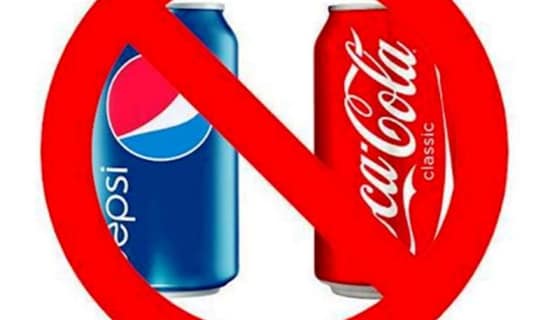Russia's relations with its frenemy Turkey have been constantly in the news be it over Nagorno Karabakh, Libya, Syria, arms purchases etc. The issue of the Russian coronavirus vaccine Sputnik V has proven to be another sore point. Last week, the Turkish Minister of Health of Turkey Fahrettin Koca, the newspaper Haberturk that Ankara will not purchase the Russian vaccine. The problem, Koca explained, arose from GLP (Good Laboratory Practice) compliance. "Russia was unable to meet it. For this reason, WHO and the world cannot purchase this vaccine, and in our country, it cannot obtain a license." This negative appraisal of the Russian vaccine prompted Putin's press secretary Dmitry Peskov to issue a defense of the vaccine as "a very effective and reliable vaccine that can and will certainly play a very important role in the fight against the pandemic."[1] The insult was compounded the following week when the Chinese Foreign Ministry reported that Turkish Foreign Minister Mevlut Cavusoglu, in a telephone conversation with his Chinese counterpart Wang Yi, called the Chinese vaccine effective and safe, and said that Turkey will buy it.[2]
Professor of Economics Vladislav Inozemtsev, the Director of the Center for Postindustrial Society Research, reacted to the press furor over the Turkish rejection of the Russian vaccine, and claimed that the media had gotten its priorities reversed. With the coronavirus taking such a heavy toll in Russia, it was foolish to concentrate on the vaccine as a source of national prestige and instead an all-out drive was needed to get the Russian population vaccinated as swiftly as possible. On this issue, Inozemtsev believes that the correct approach was shown by US President Donald Trump, who sought to ban the export of US produced vaccines abroad to ensure their availability to US citizens.
Inozemtsev's article follows below: [3]

(Image: Sputnikv.com)
"Today's news of the day on many Russian sites reported that Turkey refused to consider the possibility of purchasing the Russian Sputnik-V vaccine. Within an hour, one of the vaccine developers condemned this position, and a little later the Turkish representatives themselves said that they had been misunderstood. However, the very appearance of this topic seemed rather strange to me, to put it mildly.
"There are two observations.
"On the one hand, and I have written about this many times, I see no reason to believe that Russian specialists, who have gone about, frankly, in a rather unsophisticated way by creating a vaccine based on the human adenovirus (more precisely, even adenoviral vectors - viruses that cannot independently reproduce in the body) intended to exterminate their fellow citizens or to release a dummy [to assure] the Russians' complacency. Adenovirus vaccines have been used for decades and have no long-term health risks. No matter what they say about the incompleteness of the tests, almost 20 thousand people received the vaccine, and no serious negative consequences were recorded. In the US next week, the Pfizer vaccine will be greenlighted, and the fact that during its trials 6 people died (not from the vaccine itself, but due to the fact that one was already infected at the time of its use, one had a heart attack, and four received a placebo), does not stop anyone. The Russian vaccine, like the rest of the vaccines currently being tested in the world, forms a fairly pronounced immune response - in some cases even surpassing the rates observed in people who have had covid infections - and this should be a strong argument in favor of its use.
"In other words, it is difficult to repeat that in the current vaccination conditions, there is no alternative, especially in Russia, where people are dismissive of any form of social distancing and are actively involved in covid dissidence.
"On the other hand, the attention paid to the problem of Turkey's statements is surprising. Indeed, Russia sent the vaccine for certification to the WHO, which is absolutely correct: the relatively independent expertise has not bothered anyone yet. But at the same time, it is not entirely clear to me what relation Turkish opinion has to the issue under discussion. If in Russia the number of cases of infection and mortality are at their maximum, if in St. Petersburg the governor talks about the possibility of a total lockdown, and the industry is experiencing obvious problems with the supply of the required number of doses for the drug - what have the Turks (Ukrainians, Indians, [and those] further down the list) to do with it?
"The day before yesterday, President Trump signed an executive order requiring priority vaccination for of Americans and suggesting that the vaccine will be sold abroad not before 100 million doses will be supplied for domestic market needs.
"Why are we now so concerned about 'promoting' our product abroad? Are we doing so well on our own? Have people stopped dying? Are the hospitals empty? Therefore, it seems to me that now there is no need to focus on all sorts of fake news like today's sensation, but to convince people as much as possible (to convince, not force) not of the virtues of our vaccine over foreign ones, but above all of its safety and the absence of a genuine alternative to mass vaccination ...
"And, of course, you need to deal not so much with reasoning about the pros and cons of the drug, but with the real increase in its release. Time is running out and every day is very expensive. Like every covid-dissidence hysteria ..."

Vladislav Inozemtsev (Source: Peoples.ru)








